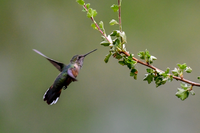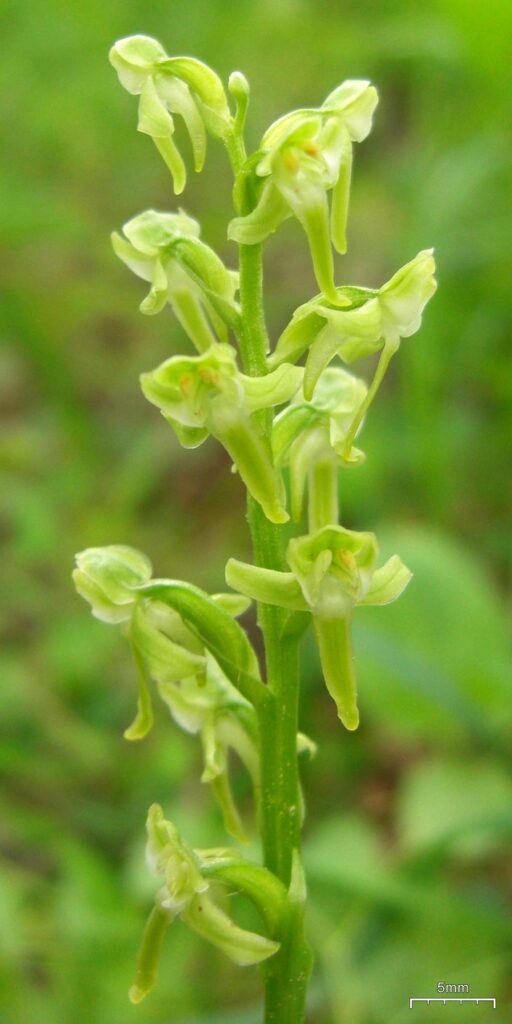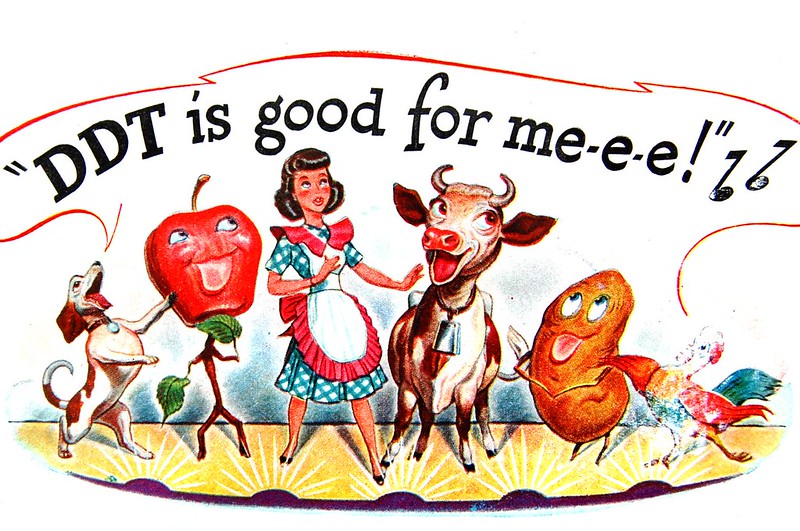Just say no to Mosquito Joe
It’s that season again—time for my annual screed against mosquito sprays. This morning I passed a truck in front of a house in my neighborhood and walked through a perfumed cloud that made my lips burn and left an unpleasant taste in my mouth that still lingers. If you’re thinking about using one of these services, please reconsider.

The problems associated with mosquito sprays are well documented. This post from the National Wildlife Foundation gives thorough description. Mosquito sprays don’t just kill mosquitoes. They kill all insects, including butterflies, bees, caterpillars, and ladybugs. They harm birds, since birds eat insects. The chemicals leach into our waterways and poison fish. They can make pets sick and have negative effects on human reproductive, skeletal, cardiovascular, immune, and nervous systems. The EPA has classified permethrin, an ingredient in Mosquito Joe’s traditional treatment, as “likely to be carcinogenic in humans.”

Mosquito Joe bothers me in particular because they minimize and even lie about the harm they cause. This is a tactic known as greenwashing or greenscamming. Not only do they claim their product isn’t harmful, they say it’s beneficial. They have a “Pollinator Protection Program” and use a “natural” repellent made of essential oils like rosemary, lemongrass, peppermint, and garlic. (Why not just spray those on your yard then and save yourself three hundred dollars?) They claim their technicians are “mosquito control experts” trained to consider wind direction and to avoid flowering plants and insects. This has not been my experience. But don’t take my word for it. In this article, “Are backyard mosquito sprays safe and effective?,” an entomologist and an organic lawn care professional cover all the main points: How effective are these sprays? Are they worth the money? What else can I do about mosquitoes?
What else you can do
You can do a lot, it turns out. We have many safe, effective ways to protect against mosquitoes that don’t involve spraying and don’t cost much money. I outlined some of these—repellent, coils, and traps—in this post from 2022, A deep dive into the subject of mosquito sprays (My all-time most popular post). I’m learning about more methods all the time. For instance, the My Green Montgomery article links to instructions for how to build a 50-cent pesticide-free trap, also known as an Ovitrap.
Mosquitoes are a nuisance. We can all agree on that. But we don’t need to douse toxic chemicals on the outdoors to enjoy it. Exterminators are part of a 26-billion-dollar industry, and I doubt reducing pesticide use is a priority for them. It can be for us, though. I hope you’ll want to read up about this and will help spread the word. Thanks for reading!

REFERENCES
What You Need to Know Before Spraying for Mosquitoes (2022)
What You Need to Know Before Spraying for Mosquitoes
Current Research on the Safety of Pyrethroids Used as Insecticides (2018)
https://www.ncbi.nlm.nih.gov/pmc/articles/PMC6174339/?report=classic
An interview with experts: Are backyard mosquito sprays safe and effective? (Dated 2023 but originally published in 2020. Check out the comments!)
An interview with experts: Are backyard mosquito sprays safe and effective?
Make your own 50-cent, pesticide-free Mosquito trap! (2020)
Make your own 50-cent, pesticide-free Mosquito Trap!

“The great expectations held for DDT have been realized.” Detail of Penn Salt chemicals advertisement in Time magazine June 30, 1947.https://www.flickr.com/photos/crossettlibrary/5574122257
###
